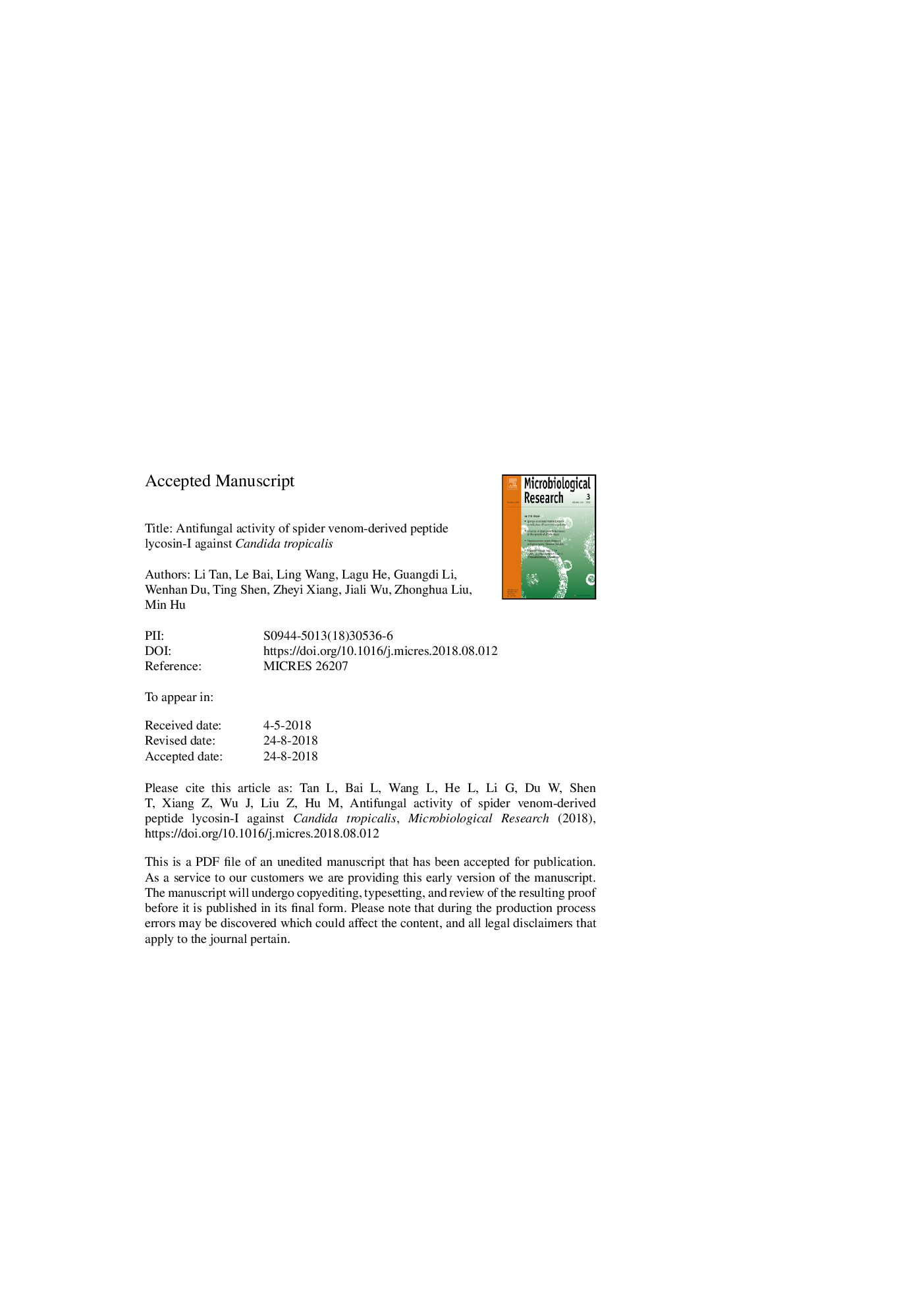| Article ID | Journal | Published Year | Pages | File Type |
|---|---|---|---|---|
| 9954415 | Microbiological Research | 2018 | 40 Pages |
Abstract
Candida species are a major cause of human mucosal and deep tissue fungal infections, but few antifungal treatments are available. Here, we showed that lycosin-I, a peptide isolated from venom of the spider Lycosa singoriensis, acted as a potent antifungal inhibitor against Candida species. The MIC50 values of lycosin-I reached 8â¯Î¼g/mL to treat fluconazole-susceptible and fluconazole-resistant C. tropicalis isolates. Time-kill kinetics assays revealed that after a 2-hour exposure, lycosin-I reduced colony-forming units/mL in fluconazole-susceptible and fluconazole-resistant C. tropicalis isolates approximately 70%. Furthermore, salinity tolerance assays suggested that even in the presence of Mg2+, lycosin-I maintained its potent antifungal ability at a high concentration. When the concentration of lycosin-I was increased from 1â¯Ãâ¯MIC to 8â¯Ãâ¯MIC, a significant decrease of the biofilm metabolic activity was observed in both fluconazole-susceptible and fluconazole-resistant C. tropicalis isolates. Moreover, the biofilm inhibitory concentration 50 (BIC50) and the biofilm eradicating concentration 50 (BEC50) were approximately 32â¯Î¼g/mL and 128â¯Î¼g/mL, respectively. Confocal laser scanning microscopy showed the localization of CY5-labeled lycosin-I mainly in the cell cytoplasm, and lycosin-I was likely to be localized in the cytoplasm after its transportation across the cell wall and membrane. Overall, our work shows that lycosin-I is a potent antifungal agent with a high efficacy, a high salinity tolerance, and potent anti-biofilm properties.
Related Topics
Life Sciences
Biochemistry, Genetics and Molecular Biology
Biotechnology
Authors
Li Tan, Le Bai, Ling Wang, Lagu He, Guangdi Li, Wenhan Du, Ting Shen, Zheyi Xiang, Jiali Wu, Zhonghua Liu, Min Hu,
